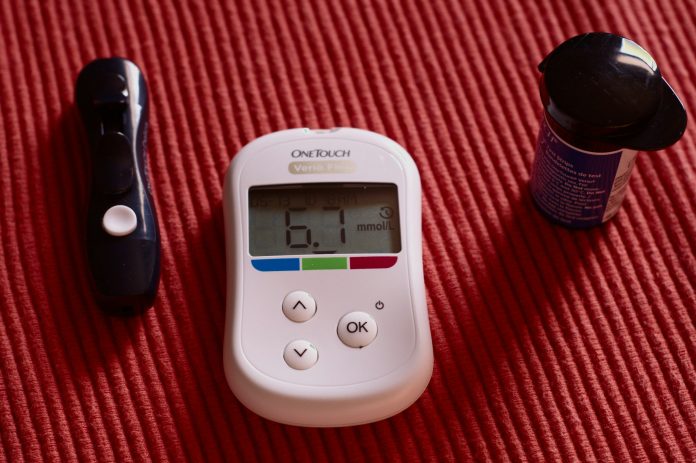Discover the ins and outs of how long does blood sugar stay elevated after eating, and learn strategies for managing your levels for a healthier life.
In today’s fast-paced world, understanding the nuances of our health, especially when it comes to blood sugar levels, is more crucial than ever. With diabetes and other metabolic disorders on the rise, a deeper knowledge about how long does blood sugar stay elevated after eating is not just beneficial—it’s necessary. This guide aims to shed light on this important topic, backed by scientific insights and practical advice.
How Long Does Blood Sugar Stay Elevated After Eating?
The question of how long blood sugar remains high after meals is a pressing one for many. Typically, blood sugar levels peak within an hour or two after eating and can return to baseline levels within two to three hours. However, this is a highly individual process influenced by the type of foods consumed, their glycemic index, and the body’s insulin response. High glycemic index (GI) foods tend to spike blood sugar levels more quickly and significantly than low GI foods.
Is Your Blood Sugar Drain Blocked? Glucoberry
Buy Now
Factors Influencing Blood Sugar Peaks
Understanding the factors that affect how your blood sugar responds to food can empower you to make choices that support your health. The macronutrient composition of your meal (carbohydrates, proteins, and fats) plays a significant role, with carbohydrates having the most immediate impact on blood sugar levels. However, the presence of fiber and fat can moderate this response, slowing the absorption of sugar into the bloodstream.
How Your Body Processes Sugar
At the heart of blood sugar management is insulin, a hormone that facilitates the uptake of glucose (sugar) by your body’s cells. When insulin function is impaired, as in the case of insulin resistance, blood sugar levels can remain elevated for longer periods. Understanding and recognizing signs of insulin resistance is crucial for early intervention and management.
Monitoring and Managing Blood Sugar Levels
Today, there are numerous tools and strategies at our disposal for monitoring and managing blood sugar levels. Continuous glucose monitoring systems offer real-time insights into how foods affect your blood sugar, enabling tailored dietary and lifestyle adjustments. Incorporating a balanced diet, regular physical activity, and, if necessary, medication, can help maintain stable blood sugar levels and prevent long-term complications.
The Science Behind Blood Sugar Elevation After Meals
Delving into the physiology, after you eat, your digestive system breaks down carbohydrates into glucose, entering the bloodstream and causing blood sugar levels to rise. This response can vary widely depending on the individual and the specifics of their meal. Timing and frequency of meals also play a role, with smaller, more frequent meals often recommended for better blood sugar control.
Preventing and Reducing High Blood Sugar Post-Meal
Strategies for minimizing post-meal blood sugar spikes are crucial for those looking to manage their blood sugar levels effectively. Choosing foods with a lower glycemic index, incorporating fiber-rich foods, and understanding the optimal timing for meals and snacks can all contribute to more stable blood sugar levels.
The Link Between Blood Sugar Levels and Overall Health
The importance of managing blood sugar levels extends far beyond immediate post-meal effects. Over time, consistently elevated blood sugar can lead to a range of health issues, including increased risk for type 2 diabetes, cardiovascular disease, and other chronic conditions. Conversely, maintaining stable blood sugar can support overall health and vitality.
Conclusion: Taking Control of Your Blood Sugar
Understanding how long blood sugar stays elevated after eating is just the beginning. By applying the knowledge and strategies discussed in this guide, you can take meaningful steps toward controlling your blood sugar levels, improving your health, and enhancing your quality of life.
Also Read: The Ultimate Guide to Different Types of Dental Implants: Discover Your Perfect Smile
Is Your Blood Sugar Drain Blocked? Glucoberry
Buy Now
Affiliate Disclosure:
The links contained in this product review may result in a small commission if you opt to purchase the product recommended at no additional cost to you. This goes towards supporting our research and editorial team and please know we only recommend high quality products.
Disclaimer:
Please understand that any advice or guidelines revealed here are not even remotely a substitute for sound medical advice from a licensed healthcare provider. Make sure to consult with a professional physician before making any purchasing decision if you use medications or have converts following the review details shared above. Individual results may vary as the statements made regarding these products have not been evaluated by the Food and Drug Administration. The efficacy of these products have not been confirmed by FDA approved research. These products are not intended to diagnose, treat, cure or prevent any disease.




